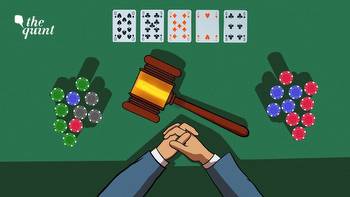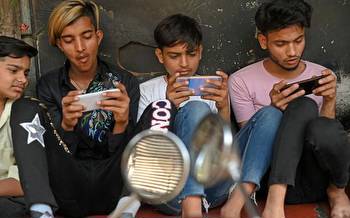All India Gaming Federation are in conflict with Tamil Nadu over gambling debacle

India is at a crossroads when it comes to online skill gaming throughout the country. And the result of an ongoing appeal by the state of Tamil Nadu to the Indian Supreme Court, could change the gambling landscape in India forever.
The All India Gaming Federation (AIFG) and several major gaming platforms have banded together to implore restrictive states to overturn their recent rulings as was done in Tamil Nadu.
But on the other side of the argument, Tamil Nadu will be trying to uphold their initial amendment, by appealing to the supreme court.
The verdict of this appeal is bound to have a major ripple effect on the industry. If the highest court in the country upholds the Tamil Nadu law, it could cause other states to implement similar laws. Marking the end of online gambling in India as we know it.
However, if it goes the other way, the industry will be permitted to grow, allowing for an influx of foreign investment from international gambling companies. And hopefully with it, a boost to the economy.
According to the SevenJackpotsresearch team, the right way forward is to regulate the gambling industry. The team pointed out that regulation would pave the way forward for “taxation, personal data protection, fair competition, and tech transparency.”
Restrictive gambling laws in India
With a population of almost 1.4 billion, India is quickly becoming one of the most lucrative gambling markets for online gaming operators.
But there is a looming threat to this growth. Tamil Nadu, Karnataka, Kerala and Andhra Pradesh have all proposed and at times implemented laws aiming to stamp out all forms of online gambling.
With Chennai having a population of over 8.6 million a complete ban in Tamil Nadu will have a massive impact on the future of the industry in India. This could come with a serious economic impact for India.
The AIFG project that online gambling will employ around 40,000 people in India by 2023. If allowed to flourish.
But there is good news for the industry. In August 2021, the Madras High Court struck down the Tamil Nadu Gaming and Police Laws (Amendment) Act of 2021, deeming it unconstitutional. The ruling was made based on the Tamil Nadu Act not making a distinction between games of skill and games of chance.
In the past, the supreme court has upheld that according to the Public Gambling Act of 1867, games of skill are allowed. It’s under the same ruling, that you’re allowed to wager on horseracing in almost every state in the country.
The divisiveness of online gambling
That’s why the All India Gaming Federation, millions of online sports and casino gamblers, poker players, casino sites and Tamil Nadu itself and the other Indian states are waiting with baited breath as regards which way the Supreme Court goes regarding the appeal.
The impact of that decision could determine whether India goes back to having practically non-existent online gambling or embracing it more than ever before.
Most of the country still operates under outdated laws. Some written more than a century ago.
Under these laws each state can create their own gambling regulations. But even these laws can be archaic, dating back long before online gaming even existed.
Recently, there has been a new wave of state legislation trying to place an outright ban on gambling.
The AIGF was created in 2016 as the apex industry for online skill gaming in the country. The organisation aims to facilitate the recognition of the Online Skill Gaming Industry.
Their objective is to ensure global best practises throughout India, by advocating responsible gaming and player protection. But their main goal is to encourage Indian states to create gambling regulation, as opposed to a straight up ban on all forms of gambling. The key is self-regulation.
Jay Sayta, a lawyer and gaming industry analyst, told Al Jazeera. “The concerns over gambling are legitimate. But a heavy-handed response is not the answer.” He suggests controlled measures, such as placing a cap on how much can be wagered on a game.
KPMG has described India as the world’s fastest-growing gaming market with 420 million casual online gamers in the country.





































